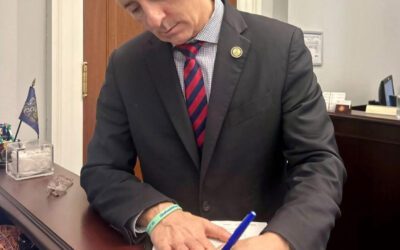
Stephanie Perry fights back tears as she shares her story to Secretary of U.S. Health and Human Services, Xavier Becerra who hosted a panel discussion with families directly affected by the Alabama Supreme Court Court decision, Tuesday, Feb. 27, 2024, in Birmingham, Ala. (AP Photo/ Butch Dill)
Originally published by The 19th
BIRMINGHAM, Ala. — LaTorya Beasley had her first child through in vitro fertilization (IVF) in 2022, and by November 2023 she was ready to expand her family. She started preparing for another round of IVF, getting blood work and stopping nursing her daughter. She was finally cleared for an embryo transfer, scheduled for March 4. But her state Supreme Court had other plans.
Beasley and others affected by a seismic Alabama Supreme Court ruling threatening IVF were among those who met Tuesday with Health and Human Services Secretary Xavier Becerra to discuss the chaos and confusion the decision unleashed on providers and patients. For many, it brought fertility treatment to a standstill.
“It’s just been kind of a gut punch,” Beasley said. “We were at the doctor’s office when the doctors and the clinics said they would close down. The very next day, I got progesterone shots delivered. It’s just been gut punch after gut punch for us.”
The court’s ruling underscores the far-ranging consequences of the loss of federal abortion rights in a state like Alabama, which has a total abortion ban in place and a conservative-dominated Supreme Court. Becerra’s visit also highlighted the limited tools the Biden administration has at its disposal to address the continued erosion of reproductive rights, which President Joe Biden has placed at the center of his 2024 reelection campaign.
A majority of Supreme Court justices in Alabama said in an unprecedented February 16 ruling that frozen embryos created by IVF are considered children under Alabama law, specifically the state’s Wrongful Death of a Minor Act. The ruling cited the U.S. Supreme Court’s decision in Dobbs v. Jackson Women’s Health, which overturned Roe v. Wade, in multiple places. The justices also cited a constitutional amendment voters passed in 2018 establishing no right to abortion and declaring “the sanctity of unborn life and the rights of unborn children” in the state.
In any given IVF cycle, frozen embryos are routinely discarded if they test positive for genetic abnormalities, if they’re not needed or if the patient can no longer afford to keep storing them.
The University of Alabama at Birmingham’s health system, the largest in the state, announced Wednesday that it would pause all IVF treatment, and two other clinics followed suit in halting some or all IVF services in response to the decision. At least one embryo shipping company said it too was “pausing all activity in Alabama until further notice.”
All of the women at the roundtable described the profound emotional strain and isolation that comes with undergoing fertility treatment. Several of them had already had their fertility treatments disrupted by the pandemic, only to be derailed again by the Supreme Court’s decision.
“The IVF world as a whole is so isolating and lonely,” said Kendall Diebold, a nurse practitioner and fertility patient. “And this really has taken all of that and just magnified it and filled it with sadness and grief and anger.”
The state’s attorney general, Steve Marshall, said he would not prosecute clinics or families pursuing IVF under the ruling. But the uncharted legal territory created by the decision has left providers worried about facing civil lawsuits or even criminal penalties.
Dr. Jared Robins, CEO of the American Society for Reproductive Medicine, said Marshall’s promise provides little assurance for Alabama providers. He said clinics in neighboring states like Georgia and Tennessee are prepared to start taking in patients from Alabama, even though many are at capacity themselves.
“I’ve been a fertility doctor for more than 25 years, that devotion, holding our patients’ hands, that’s a really important part of our identity,” he said. “Those doctors are really worried, not for themselves, but for what’s going to happen to all of these patients.”
Multiple women at the roundtable had complex medical circumstances that put them on tight timelines and made it impossible or impractical to seek care elsewhere.
Elizabeth Goldman, who was born without a uterus due to a rare condition, was the 36th patient in the United States to receive a uterine transplant. After she and her husband moved from Mobile to Birmingham to get treatment at UAB, she was able to conceive and give birth to her daughter, Zari Grace, with her transplanted uterus. But because of the intense regimen of transplant medications required, she can carry only two pregnancies with it.
“The plan was always to gear up for another embryo transfer around the six-month mark, which would be April, and that’s basically at a standstill,” Goldman said. “My whole entire life, my whole journey revolves around IVF and being able to do another embryo transfer.”
Dr. Rachel Charles, an internal medicine doctor who has lupus, described the grueling medical regimen she went through to undergo IVF and prepare for an embryo transfer. In February, she decided to take a break from the daily hormone injections instead of proceeding with an embryo transfer.
“We did not do the transfer in February. And we were going to do the transfer at the end of March — and here we are,” she said.
Rebecca Mathews, a 36-year-old mother of two children conceived through IVF, told The 19th in an interview earlier Tuesday that she reacted with a mix of shock and anger when she heard news of the decision. She has a remaining frozen embryo and hasn’t yet decided how to proceed.
“We had options and we only had time, and now we don’t have either of those,” Mathews said.
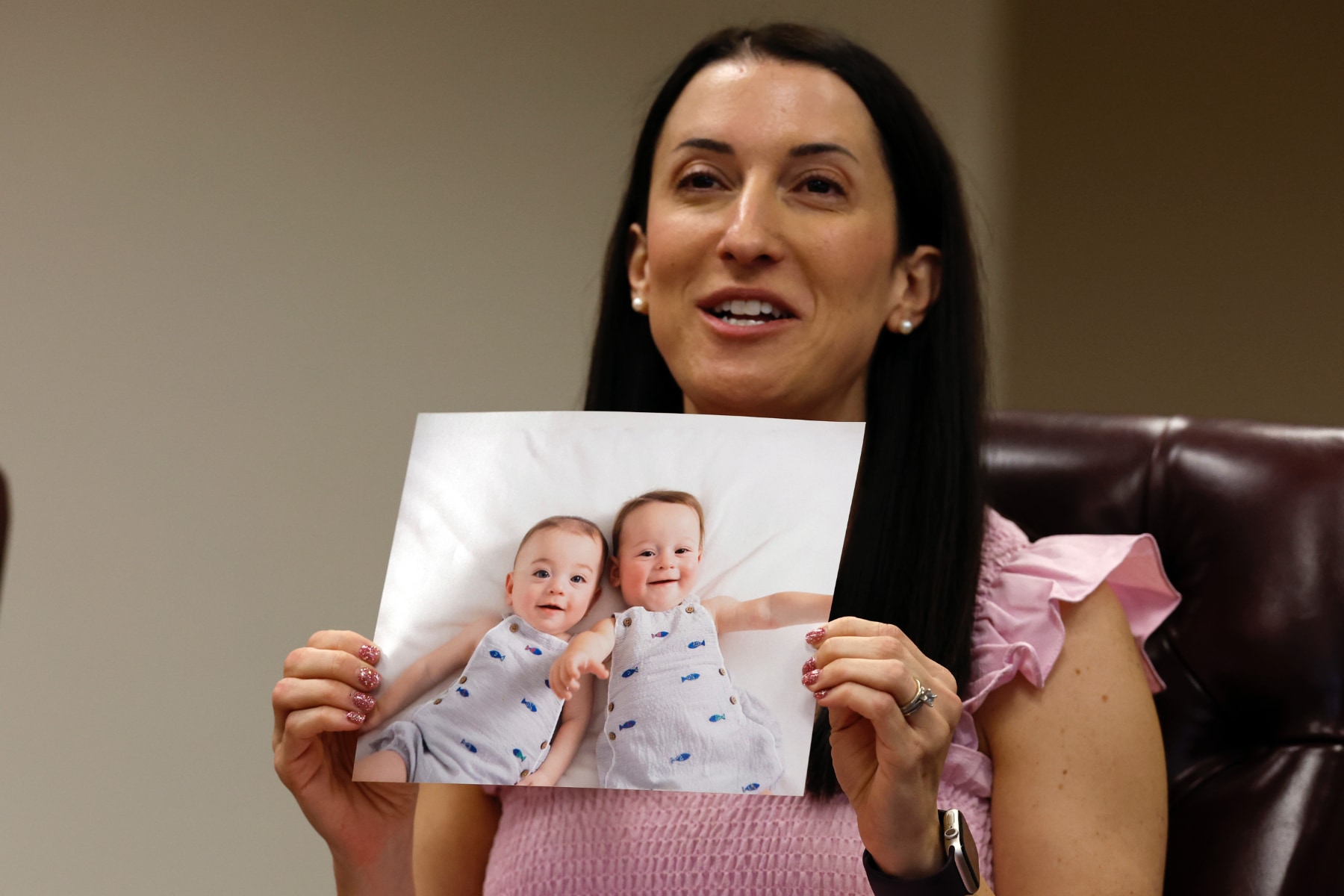
(Butch Dill/AP)
Absent federal legislation, it’s unclear what actions the Biden administration could take in response to the Alabama decision. Becerra argued federal legislation restoring Roe would be the only solution at the national level to protecting IVF and reproductive rights.
“There’s nothing that comes to mind to me that the Biden administration could do other than sort of draw political attention to this,” said Sonia Suter, a legal professor and bioethicist at George Washington University. “It’s really a state issue. And the state is entitled to reach this conclusion.”
Former Democratic Sen. Doug Jones, who was present at the Tuesday roundtable, agreed.
“From a practical standpoint, with an executive order or things like that, I don’t think they can. I think that’s very tough,” Jones said. “But one of the reasons I think the secretary was here is they have a nice bully pulpit to talk about it. And they want to make sure that other states and people know: Don’t do what Alabama has done.”
The White House and Democrats have placed the Alabama decision squarely at the feet of former President Donald Trump, who appointed the Supreme Court justices who overturned Roe, and Republicans. Biden, in a Thursday statement, called the decision “outrageous and unacceptable, adding: “Make no mistake: this is a direct result of the overturning of Roe v. Wade.”
White House press secretary Karine Jean-Pierre also took aim at congressional Republicans who have cosponsored a federal abortion ban bill that defines life at fertilization in a Monday memo slamming them for “shamelessly attempting to erase their own records on IVF.”
The state Supreme Court’s ruling stemmed from a civil lawsuit IVF patients filed against a Mobile clinic after their embryos were destroyed in 2020 by a wandering patient who dropped them on the floor. Alabama lawmakers included a provision exempting embryos created through IVF to the state’s abortion ban, but the high court’s decision was based on a different state law regarding civil liability for the deaths of minors.
Alabama state legislators on both sides of the aisle are rushing to find potential legislative fixes to clarify that frozen, fertilized embryos are not children. Advocates with RESOLVE: The National Infertility Association, are set to hold a rally at the state Capitol in Montgomery on Wednesday, followed by a day of lobbying lawmakers.
Jones said the Alabama decision was a result of “political pandering to the far right” by Alabama GOP lawmakers who didn’t realize the full consequences of their policies.
“They used catchphrases and no one knew what the hell they were talking about, and now it’s caught up with them,” Jones said of Alabama Republicans. “They are in a quandary, they are in a real twist.”
Back in Washington, Democratic senators called for a vote on legislation that would establish federal protections for IVF and other assistive reproductive technology.
Around 2 percent of American women aged 15-44 have used IVF to get pregnant, according to a Pew Research Center analysis of national health data. Several elected officials, including Sen. Tammy Duckworth, have spoken out about their own experiences using fertility treatment to conceive.
Toward the end of the roundtable, multiple women raised their hands when Becerra asked if they’d experienced more than one miscarriage, had undergone years of treatment or had sacrificed significantly to access fertility treatment. But they all kept their hands down when asked if they would choose not to go through it again.
Julie Cohen, an IVF patient who works at a nonprofit supporting those going through fertility treatment, said supporting IVF shouldn’t be a matter of politics.
“In my mind, it doesn’t matter where you fall on the political spectrum. We are all here to tell you that embryos are not babies, or we would all have a lot more babies we would be very, very grateful for,” Cohen said. “By taking away IVF in Alabama, you are literally taking away the only chance that so many families have.”
Shefali Luthra contributed reporting.
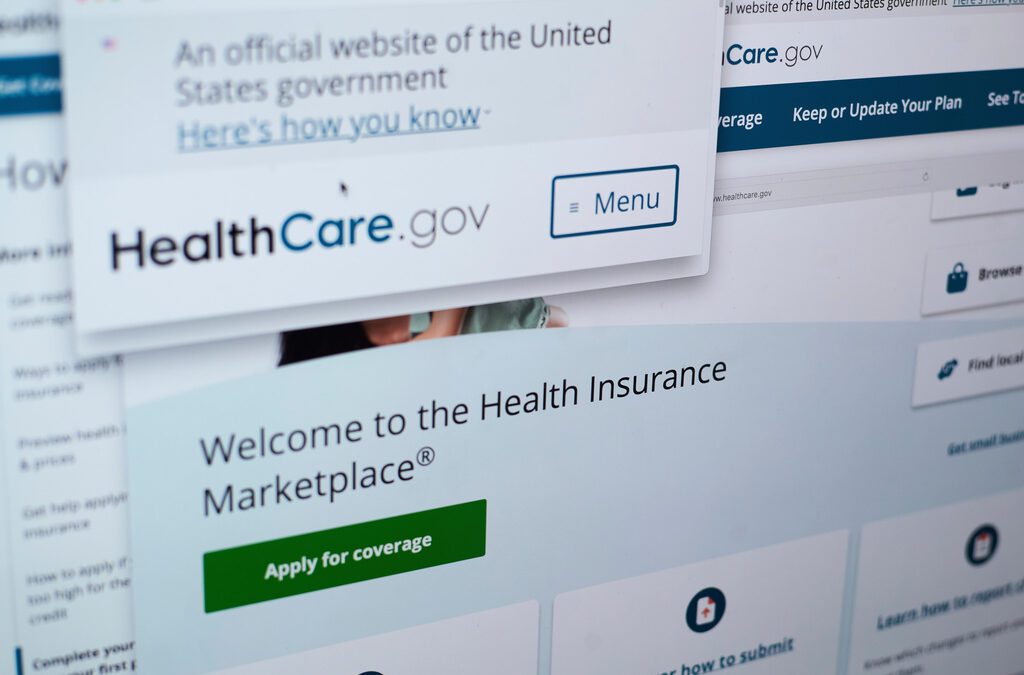
3 Pennsylvania Republicans defy Speaker Johnson to force House vote on extending ACA subsidies
Four centrist Republicans broke with Speaker Mike Johnson on Wednesday and signed onto a Democratic-led petition that will force a House vote on...

As Congress debates ACA subsidies, Pennsylvania extends Pennie enrollment deadline
Pennsylvanians now have until Dec. 31 to enroll in the commonwealth’s health insurance marketplace. Pennsylvania officials have postponed to the end...
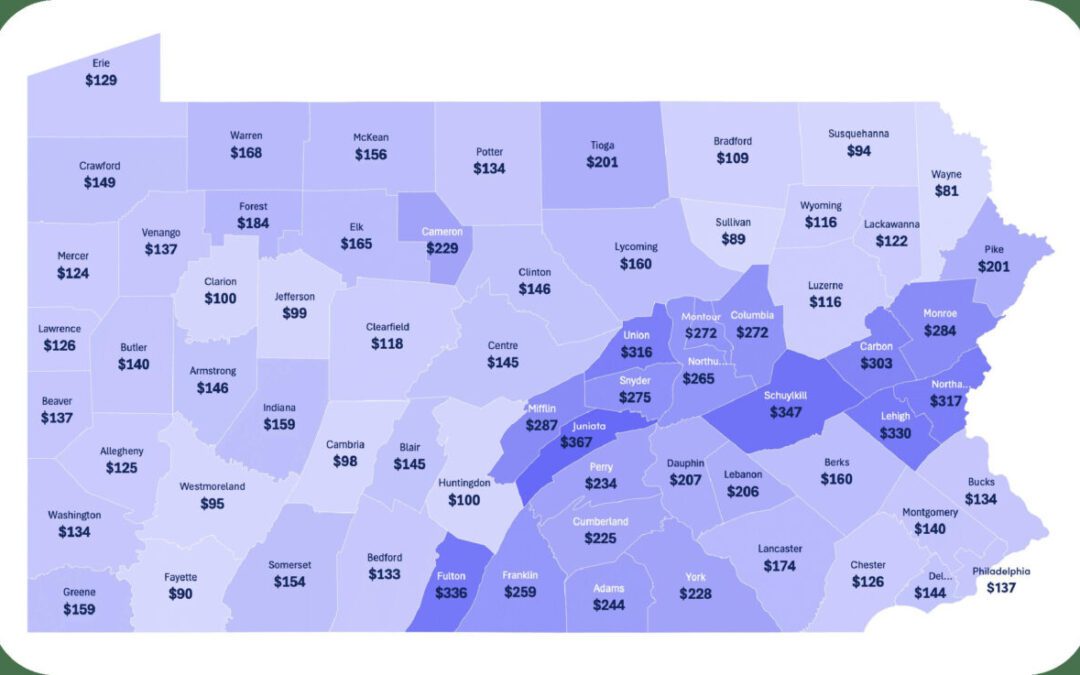
See how much Pennie premiums could go up by county in 2026
Pennsylvanians covered through the commonwealth’s Obamacare marketplace faced a Dec. 15 deadline for re-enrolling in the health program amid...

Home care workers in Pa. and other states are losing minimum wage protections — and fighting back
Three million care workers, many of them Black and Latina women, could be classified as “companions” instead of professionals. For more than two...
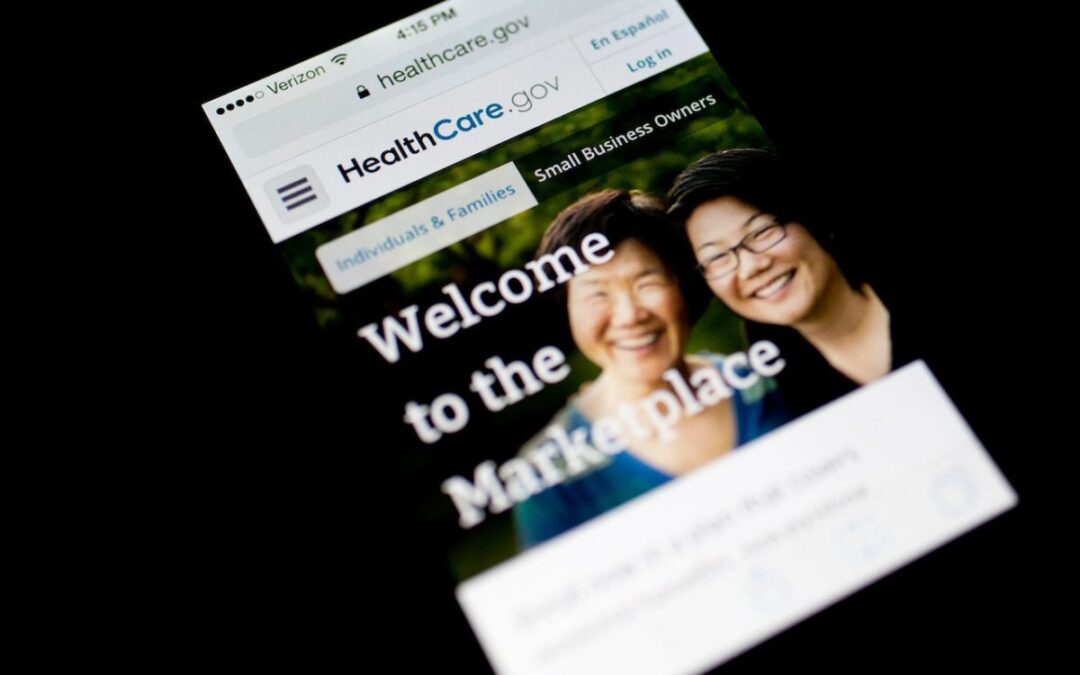
Congressional health insurance tug-o-war puts Pennsylvanians in a lurch
Premiums for state marketplace plans are expected to double in the coming year. Jamie and Carrie Wright rattle off the numbers with ease. It’s...



